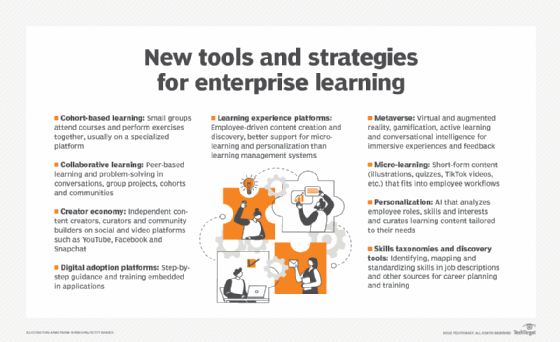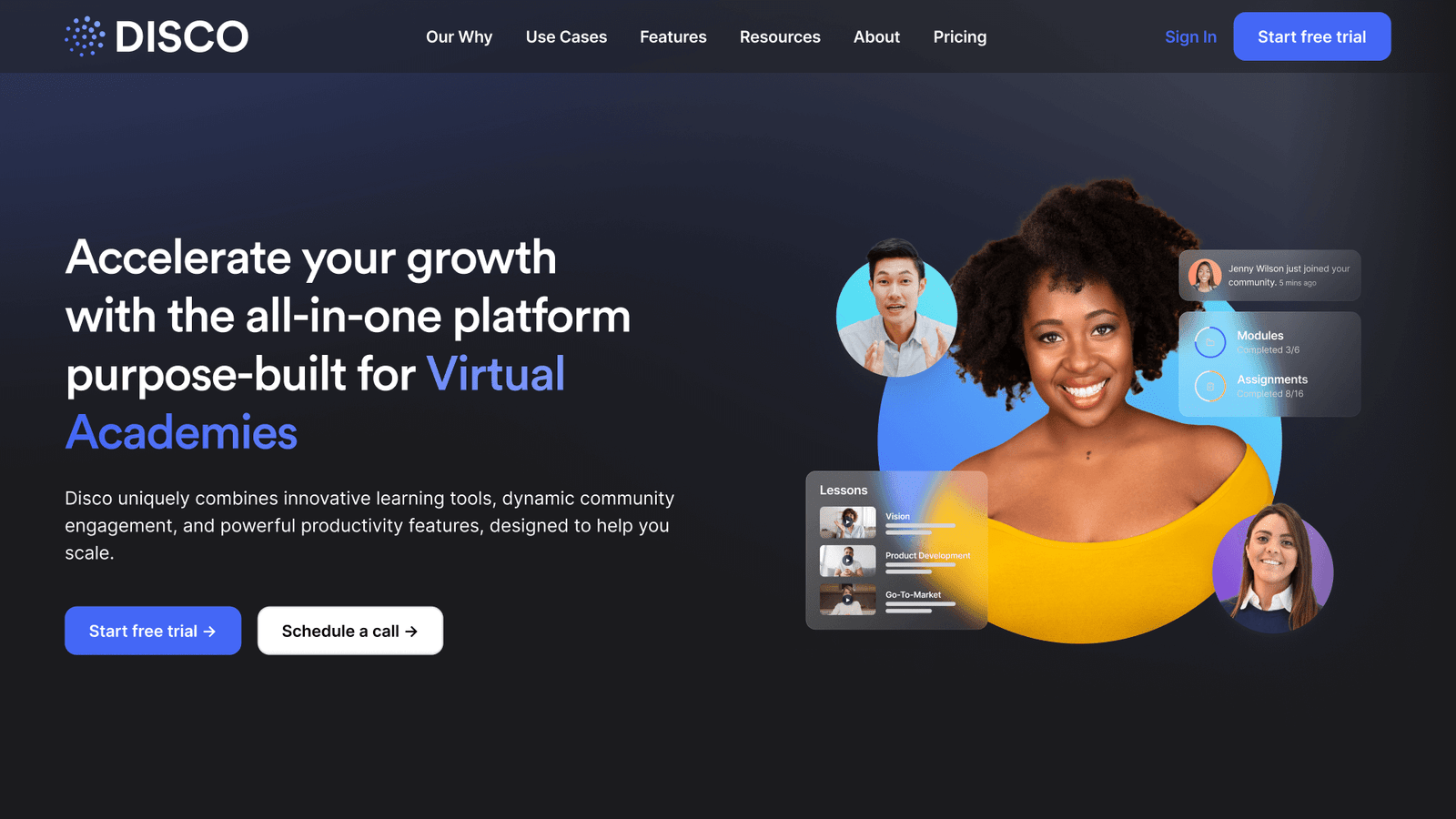Certification and skill development tools enhance career growth and expertise. They provide structured learning and validate skills.
Certification and skill development tools are crucial in today’s job market. They help individuals gain new skills and improve existing ones. These tools offer structured learning paths, making it easier to learn complex topics. Many industries value certifications as proof of expertise.
They can lead to better job opportunities and higher salaries. Online platforms like Coursera, Udemy, and LinkedIn Learning are popular for skill development. They offer various courses and certifications across different fields. Using these tools, professionals can stay updated with the latest industry trends. This continuous learning ensures they remain competitive in their careers.

Credit: thisresumedoesnotexist.com
Introduction To Certification And Skill Development
Certification and skill development are crucial in today’s workforce. They help employees stay relevant and competitive. Certification provides proof of skills and knowledge. Skill development focuses on continuous improvement.
Importance In Modern Workforce
In the modern workforce, certifications are essential. They validate expertise and set professionals apart. Employers value certified candidates. It shows dedication and a commitment to growth.
Skill development tools are equally important. They help employees learn new skills quickly. These tools include online courses, workshops, and training programs. They ensure that the workforce remains adaptable and efficient.
Trends And Statistics
Recent trends show a rise in certification programs. More professionals seek certifications to boost their careers. According to a study, 70% of employees believe certifications lead to better job opportunities. Another statistic shows a 50% increase in online course enrollments in the past year.
| Year | Certification Enrollments | Skill Development Tool Use |
|---|---|---|
| 2021 | 1,000,000 | 800,000 |
| 2022 | 1,500,000 | 1,200,000 |
| 2023 | 2,000,000 | 1,500,000 |
These statistics highlight the growing importance of certification and skill development. Investing in these areas is vital for career growth and organizational success.
- Certifications validate expertise.
- Skill development tools ensure adaptability.
- Increasing enrollments in online courses.

Credit: whatfix.com
Types Of Certifications
Certifications are essential for skill validation and career growth. They come in various types, each serving different professional needs. Understanding these types can help you choose the right certification for your career path.
Professional Certifications
Professional certifications are crucial for career advancement. They validate your expertise in specific fields. Here are some examples:
- Project Management Professional (PMP) – Recognized globally, ideal for project managers.
- Certified Public Accountant (CPA) – Essential for accountants aiming for top positions.
- Certified Human Resources Professional (CHRP) – Perfect for HR professionals seeking credibility.
Technical Certifications
Technical certifications prove your skills in technology. They are vital for IT professionals. Examples include:
- Certified Information Systems Security Professional (CISSP) – Key for cybersecurity experts.
- Microsoft Certified Solutions Expert (MCSE) – Great for network engineers and system administrators.
- Cisco Certified Network Associate (CCNA) – Ideal for network specialists.
| Certification | Field | Target Audience |
|---|---|---|
| PMP | Project Management | Project Managers |
| CPA | Accounting | Accountants |
| CHRP | Human Resources | HR Professionals |
| CISSP | Cybersecurity | Security Experts |
| MCSE | IT | System Administrators |
| CCNA | Networking | Network Specialists |
Choosing the right certification can significantly impact your career. It enhances your skills and opens new opportunities. Whether professional or technical, certifications provide a competitive edge.
Popular Skill Development Tools
Skill development tools are essential for personal and professional growth. They help individuals acquire new skills and improve existing ones. In this section, we explore some popular skill development tools. These tools are widely used and highly effective.
Online Learning Platforms
Online learning platforms are a popular choice for skill development. They offer a variety of courses and resources. Some well-known platforms include:
- Coursera: Offers courses from top universities and companies.
- Udemy: Provides a vast range of courses on many topics.
- edX: Features courses from leading institutions worldwide.
These platforms provide video lectures, quizzes, and assignments. They also offer certificates upon course completion. This makes them ideal for continuous learning and skill enhancement.
Virtual Labs And Simulations
Virtual labs and simulations are innovative tools for skill development. They allow users to practice skills in a safe, controlled environment. Some examples include:
- Labster: Offers virtual science labs for students.
- Simul8: Provides simulation software for business processes.
- Codecademy: Offers coding practice environments for learning programming.
These tools enable hands-on learning without the risks associated with real-world experimentation. They are especially useful for fields like science, engineering, and computer programming.
In summary, online learning platforms and virtual labs are excellent for skill development. They provide accessible, flexible, and practical ways to learn and grow.
Use Cases In Various Industries
Certification and skill development tools have become essential in various industries. They help professionals stay updated and competitive. Below, we explore how these tools are used in different sectors.
It And Software Development
In the IT and software development industry, staying current is crucial. Certification programs and skill development tools help professionals gain expertise.
- Programming Languages: Developers get certified in languages like Python, Java, and C++.
- Cloud Computing: Certifications for AWS, Azure, and Google Cloud are popular.
- Cybersecurity: Courses on ethical hacking and cybersecurity are in high demand.
Many companies offer in-house training programs. These programs ensure that employees are skilled in the latest technologies.
| Certification | Tool | Purpose |
|---|---|---|
| Certified Ethical Hacker (CEH) | CEH Exam | Validate cybersecurity skills |
| Google Cloud Certification | Qwiklabs | Hands-on cloud training |
| Microsoft Certified: Azure Developer Associate | Microsoft Learn | Azure development skills |
Healthcare And Medicine
In healthcare, certification and skill development tools are vital. They ensure that medical professionals are up-to-date with the latest practices.
- Medical Coding: Certifications like CPC and CCS are essential for coders.
- Nursing: Courses for specializations such as pediatric or emergency nursing.
- Pharmacy: Certifications for pharmacy technicians and pharmacists.
Hospitals and clinics often use online platforms for training. These platforms provide interactive and up-to-date learning materials.
| Certification | Tool | Purpose |
|---|---|---|
| Certified Professional Coder (CPC) | AAPC | Medical coding skills |
| Basic Life Support (BLS) | American Heart Association | Life-saving skills |
| Certified Pharmacy Technician (CPhT) | PTCB | Pharmacy technician skills |
Real-world Examples
Many businesses and educational institutions use certification and skill development tools. These tools help improve knowledge and skills. Let’s look at some real-world examples.
Case Study: Corporate Training
Corporate training programs often use certification tools. A large tech company needed to improve its employees’ skills. They chose an online certification platform.
The company offered courses in coding, project management, and data analysis. Employees completed these courses and earned certifications. The certifications helped employees get promotions and new roles.
Benefits:
- Increased employee skills
- Higher job satisfaction
- Better job performance
Table shows the impact on the company:
| Metric | Before Training | After Training |
|---|---|---|
| Employee Satisfaction | 70% | 90% |
| Project Success Rate | 60% | 85% |
Case Study: Academic Programs
Universities also use certification tools. A university wanted to help students learn new skills. They introduced a skill development platform.
Students could take courses in digital marketing, graphic design, and more. They earned certificates for each completed course. These certificates helped students get jobs after graduation.
Benefits:
- Enhanced student skills
- Increased job opportunities
- Improved student confidence
Table shows the impact on students:
| Metric | Before Program | After Program |
|---|---|---|
| Employment Rate | 65% | 85% |
| Student Satisfaction | 75% | 95% |
Benefits Of Certification Programs
Certification programs offer numerous advantages for professionals. These programs can significantly impact career growth and personal development. Here are some key benefits:
Career Advancement
Certification programs help professionals climb the career ladder. Obtaining a certification demonstrates expertise and dedication. Employers value certified candidates because they bring verified skills. This often leads to promotions and new job opportunities.
Increased Earning Potential
Certified professionals tend to earn higher salaries. A certification can set you apart from non-certified peers. Companies are willing to pay more for certified expertise. This can lead to significant financial benefits over time.
| Certification | Average Salary Increase |
|---|---|
| Project Management Professional (PMP) | 20% |
| Certified Information Systems Security Professional (CISSP) | 25% |
| Certified Public Accountant (CPA) | 15% |
Investing in certification can yield long-term financial rewards. Certification programs are a smart choice for career and salary growth.
Challenges And Solutions
Certification and skill development tools play a vital role in modern education and professional growth. Despite their benefits, these tools present challenges. Addressing these challenges is crucial for effective learning and certification.
Overcoming Learning Barriers
Learning barriers can hinder progress. Some common barriers include:
- Time constraints: Busy schedules make learning difficult.
- Access to resources: Not everyone has internet access.
- Motivation: Staying motivated can be tough.
Solutions to these barriers:
- Flexible learning schedules: Offer courses that fit different schedules.
- Offline resources: Provide materials that don’t need the internet.
- Gamification: Use game elements to make learning fun.
Ensuring Certification Relevance
Certification relevance is crucial for career advancement. Outdated certifications can be a problem. Examples of ensuring relevance include:
| Challenge | Solution |
|---|---|
| Outdated curriculum | Regularly update course content. |
| Industry alignment | Consult industry experts for content. |
| Real-world application | Include practical examples and case studies. |
Ensuring certification relevance requires continuous effort. It ensures learners gain valuable skills for their careers.
Future Of Certification And Skill Development
The future of certification and skill development is bright. It is evolving with technology. As the world changes, so do the ways we learn. New tools and methods are emerging. These are making learning more accessible and effective. Below, we explore some key trends and technologies shaping this future.
Emerging Technologies
Technology is transforming education. Here are some key technologies:
- Artificial Intelligence (AI): AI helps personalize learning experiences. It adapts to the learner’s pace.
- Virtual Reality (VR): VR provides immersive learning environments. It makes complex subjects easier to understand.
- Blockchain: Blockchain ensures secure and verifiable certificates. This reduces fraud.
- Learning Management Systems (LMS): LMS platforms streamline course delivery. They also track progress effectively.
These technologies are changing how we learn. They make learning more engaging and efficient.
Predicted Trends
Several trends are likely to shape the future of certification:
- Micro-Credentials: Short, focused courses. These offer specific skills. They are quicker than traditional degrees.
- Continuous Learning: Lifelong learning will become the norm. People will need to update skills constantly.
- Remote Learning: Online courses will dominate. This allows learning from anywhere.
- Gamification: Learning will become more game-like. This increases engagement and motivation.
These trends will make learning more flexible and accessible. They will help people stay relevant in their fields.
| Technology | Use Case |
|---|---|
| AI | Personalized learning paths |
| VR | Immersive simulations |
| Blockchain | Secure certification |
| LMS | Efficient course management |
The future of certification and skill development is exciting. Embrace these changes to stay ahead.

Credit: www.techtarget.com
Frequently Asked Questions
What Are Certification Tools Used For?
Certification tools verify and validate skills and knowledge. They help individuals prove their expertise to employers. These tools often provide industry-recognized credentials.
How Do Skill Development Tools Work?
Skill development tools offer training and resources. They help individuals learn new skills or improve existing ones. Tools include online courses, tutorials, and interactive modules.
Why Are Certifications Important For Career Growth?
Certifications demonstrate expertise and commitment to professional development. They can enhance your resume and increase job opportunities. Employers often prefer certified candidates.
What Are Examples Of Popular Certification Tools?
Popular certification tools include Coursera, Udemy, and LinkedIn Learning. They offer a wide range of courses and certifications. These platforms are highly recognized by employers.
Conclusion
Certification and skill development tools are essential for career growth. They boost your abilities and open new opportunities. Many industries value certified skills highly. Investing in these tools is a smart move. Stay competitive and relevant in your field. Explore and use these resources to enhance your career prospects.





